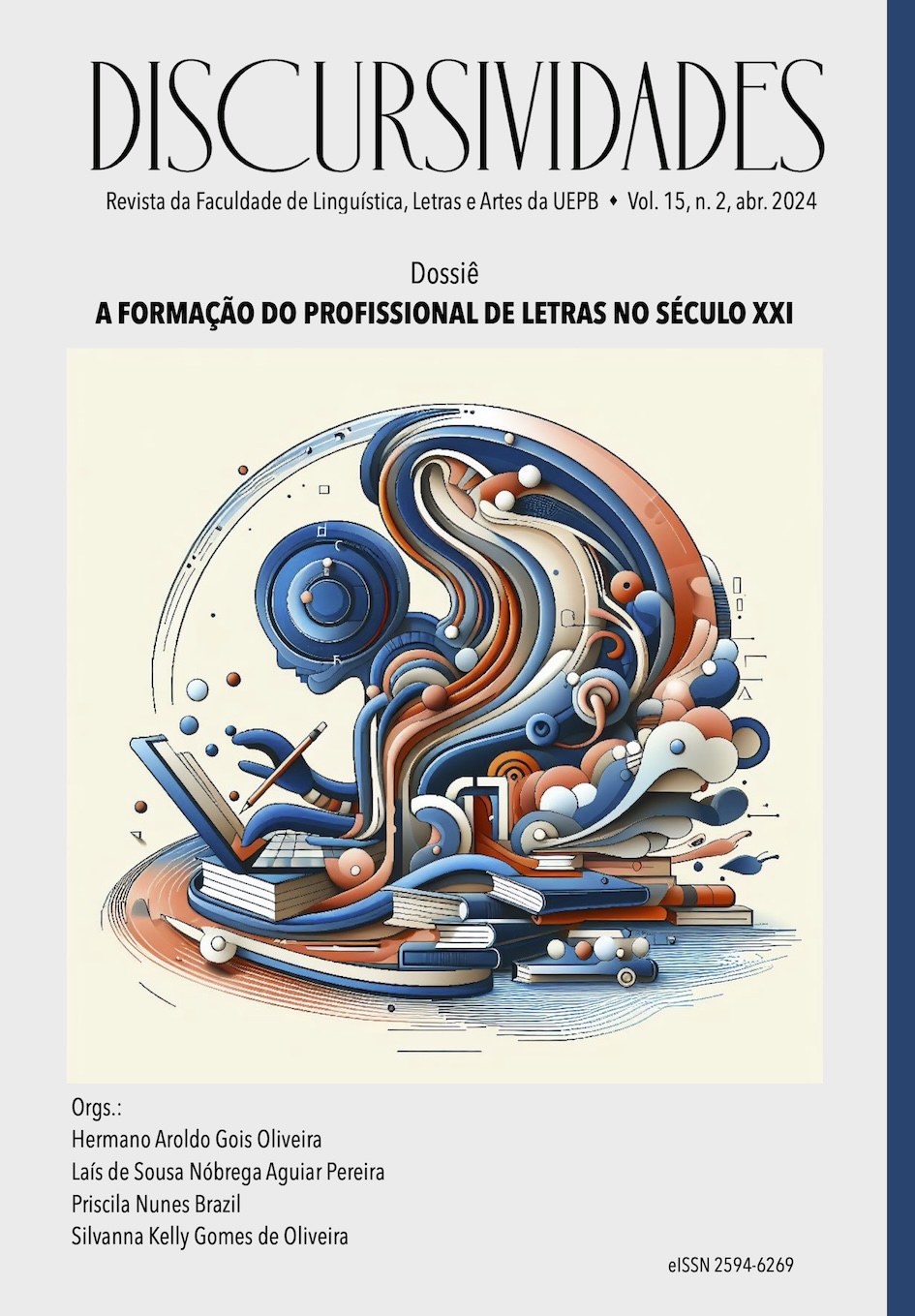Descriptive grammar as a starting point for understanding linguistic variations.
DOI:
https://doi.org/10.29327/256399.15.2-9Keywords:
Descriptive grammar. Linguistic variation. Language.Abstract
ABSTRACT : The central purpose of this work is to analyze descriptive grammar as a foundation for understanding the various plural manifestations of the language. The research focuses on linguistic variation as a systematic cultural and social expression, meticulously examined by sociolinguistics. Specific objectives involve comparing normative and descriptive grammar, highlighting approaches and definitions through illustrative examples. Additionally, it seeks to demonstrate how traditional grammar teaching in schools can hinder students’ linguistic learning and investigate, from a historical perspective, transformations in the Portuguese language, considering external and internal influences on modes of expression and speech. The work theoretically underpins renowned linguists such as Perini (2005; 1997) and Bagno (2002; 2004; 2007; 2009) and other authors with digital materials, addressing language evolution and its heterogeneity, reflecting on users’ linguistic behavior and allowing them to develop their own speech identity. Thus, the adopted method is qualitative and bibliographic. It is concluded that this approach is crucial for understanding language, positively enriching human language, and recognizing linguistic diversity as na integral part of communication.
Keywords: Descriptive grammar. Linguistic variation. Language.
References
BAGNO, M. Língua materna, letramento, variação e ensino. In : a inevitável travessia: da prescrição gramatical à educação linguística. São Paulo, parábola, 2002, p. 13-80.
BAGNO, M. Português ou brasileiro? Convite à pesquisa. 4°ed. São Paulo, parábola, 2004.
BAGNO, M. Nada na língua é por acaso. Por uma pedagogia da variação linguística. São Paulo: Parábola Editorial, 2007.
BAGNO, M. Não é errado falar assim! São Paulo, parábola, 2009, p. 36.
PERINI, M.A. Sofrendo a gramática. São Paulo, Ática, 1997.
PERINI, M.A. Gramática descritiva do português. São Paulo: Editora Ática, 2005.
SANTOS, J. Letramento, variação linguística e ensino de português. Linguagem em discurso – LemD, tubarão. v.5, n.1, p.119-134, 2004. Disponível em:https://www.google.com/url?sa=t&source=web&rct=j&opi=89978449&url=https://portaldeperiodicos.animaeducacao.com.br/index.php/Linguagem_Discurso/article/view/304/320&ved=2ahUKEwie5P’b_ZKDAxVOO7kGHa60C-YQFnoECCoQAQ&usg=AOvVaw1yOVXI9j3rKX1S86NxKO2u . Acesso em: 13 dez de 2023.
TIMBANE, A A. QUIRAQUE, Z A S. Língua ou línguas portuguesas? A variação linguística e ensino nos países lusófonos. In book: Filosofia, Política, Educação, Direito e Sociedade. Etena Editora, 2019. Disponível em: https://www.google.com/url?sa=t&source=web&rct=j&opi=89978449&url=https://www.researchgate.net/publication/331052970_LINGUA_OU_LINGUAS_PORTUGUESAS_A_VARIACAO_LINGUISTICA_E_ENSINO_NOS_PAISES_LUSOFONOS&ved=2ahUKEwj_rNSxgJODAxXmrJUCHb_yD18QFnoECBoQAQ&usg=AOvVaw1hfDp8OboBknzCWQEpQHyU . Acesso em: 13 dez de 2023.
Downloads
Published
How to Cite
License
Copyright (c) 2024 Priscila Nunes Brazil; Luana Raissa; Alice Cristine Araújo Costa Santos

This work is licensed under a Creative Commons Attribution 4.0 International License.
Authors who publish in this journal agree to the following terms:
a) Authors retain copyright and grant the journal the right of first publication. The articles are simultaneously licensed under the Creative Commons Attribution 4.0 International Public License (CC BY 4.0) which allows the sharing of the work with acknowledgment of its authorship and initial publication in this journal.
b) Discursividades journal offers immediate free access to its content, following the principle that making scientific knowledge available to the public free of charge provides greater global democratization of knowledge.






